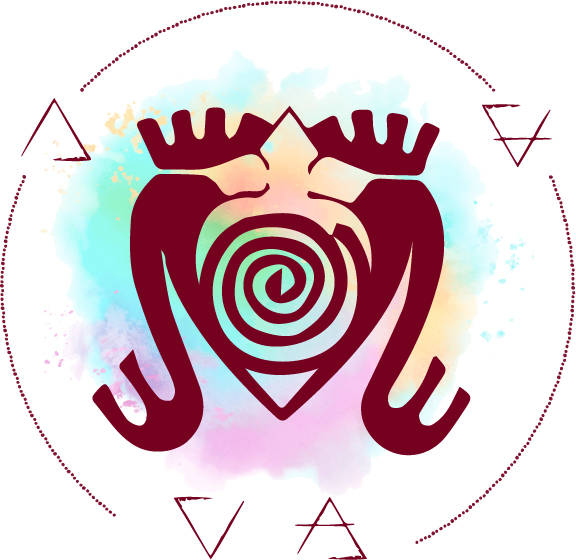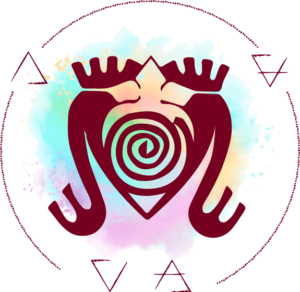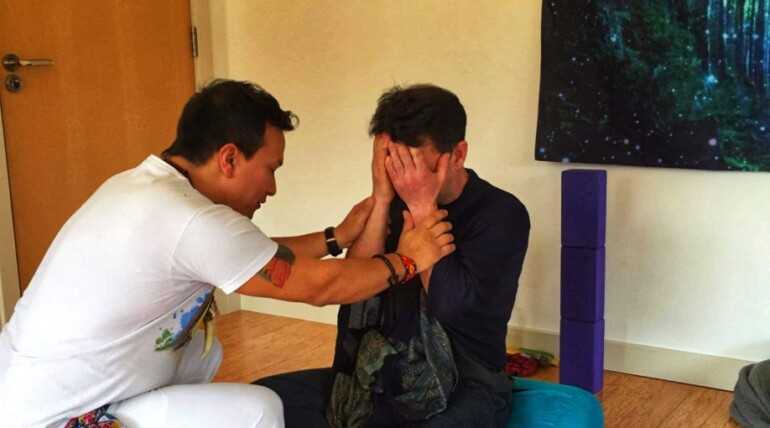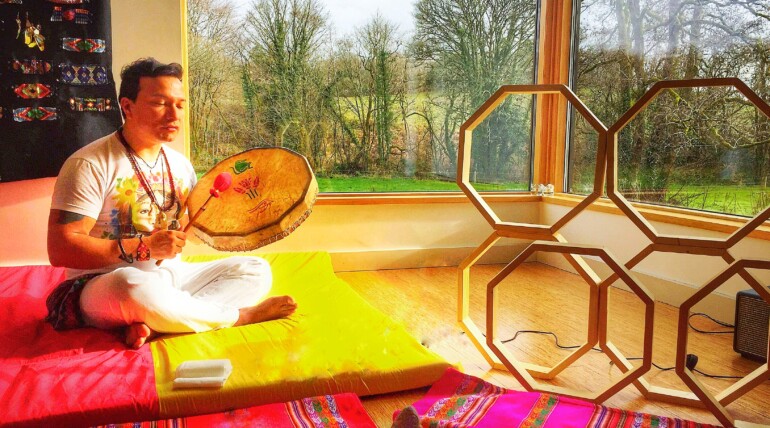Drumming for mindfulness and healing: A simple way to calm the mind.
Drum Making Workshops: East Cork Saturday 19th of September
Through the centuries, the drum was also central to many other spiritualities and religions, from ancient shamanism — documented use of more than 25,0000 years ago — to Medieval Catholic ritual, to ceremonies in numerous religions. The earliest known spirituality — broadly defined as shamanism — relied on the drum to journey into the mind and spiritual insights. Cave drawings dating to 25,000 years ago show the central role of drumming
Psychology and science have identified both drumming and mindfulness meditation as helpful therapy for everything from stress to memory loss to supportive.
Bringing the two together — mindfulness and drumming — can be life-changing. Even one session of meditation, focused on a drum’s beat demonstrates how powerful this ancient meditation method can be in our stressful modern lives. The powerful and compelling rhythm of drums can still and focus the mind
Drumming may also be used as a form of therapy for releasing and moving through strong emotions such as grief and pain. The wise make one lifetime into many; the many make one lifetime into less.
Drumming is perhaps the oldest form of active meditation known to humanity. It can help with a myriad of issues, such as: retrieving lost aspects of soul, releasing unhealthy entities, solving conflicts within the unconscious, transforming the negative energy of past traumas into positive energy, helping people finally feel suppressed emotions, and healing unhealthy patterns and habits.
Drum was an important component of various Buddhist traditions. “In Buddha’s time, the gong and drum were used to gather everyone to announce the precepts, meal times, Dharma talks.” Today, most Buddhist temples and monasteries of most traditions use drums in practice, and increasingly
“Drum meditation can also be used as a method for rewilding. In her book Sacred Land, Sacred Sex: Rapture of the Deep Dolores Chapelle reveals how the drum can have a direct, potent effect on human neurophysiology” “She concludes that trance drumming “links us directly with our real human nature in all its deep aspects and therefore can link us once again to the land.”
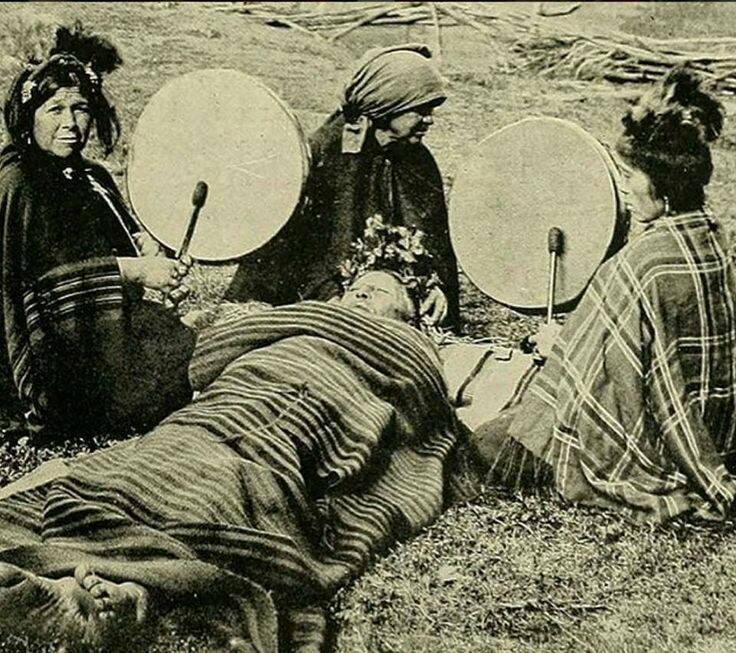 In Psychology Today, therapist Gary Diggins is quoted as saying: “We moderns are the last people on the planet to uncover what older cultures have known for thousands of years: The act of drumming contains a therapeutic potential to relax the tense, energize the tired, and soothe the emotionally wounded.
In Psychology Today, therapist Gary Diggins is quoted as saying: “We moderns are the last people on the planet to uncover what older cultures have known for thousands of years: The act of drumming contains a therapeutic potential to relax the tense, energize the tired, and soothe the emotionally wounded.
The American Journal of Public Health reviewed drum therapy in its April 2003 edition concluding … drumming directly supports the introduction of spiritual factors found significant in the healing process.
Evidence-Based Benefits of Drumming for Health
According to a well-cited article on Green Med, there are six evidence-based benefits to drumming (beyond the enhanced mindfulness aspect):
- Reduces blood pressure, anxiety and stress: 2014 study published in the Journal of Cardiovascular Medicine.
- Improves cognitive function: 2014 study in the Journal of Huntington’s Disease.
- Pain Reduction: 2012 study published in evolutionary Psychology
- Improve Immunity: 2011 study published in alternative Therapies and Health Medicine
- Induces Theta; enhanced meditation: 2004 study published in the Journal Multiple Sclerosis
- Depression and Emotional Disorders:2001 study published in the Journal Evidence-Based Complementary and Alternative Medicine
With enough practice, the power of drum meditation can help us to develop what Ivan Illich called “tools of conviviality” by giving us the courage to interpret and live our own destiny as opposed to merely going through the motions of living the destiny handed down to us, We can become human catalysts and proactive agents of change. We can become New-oracles.
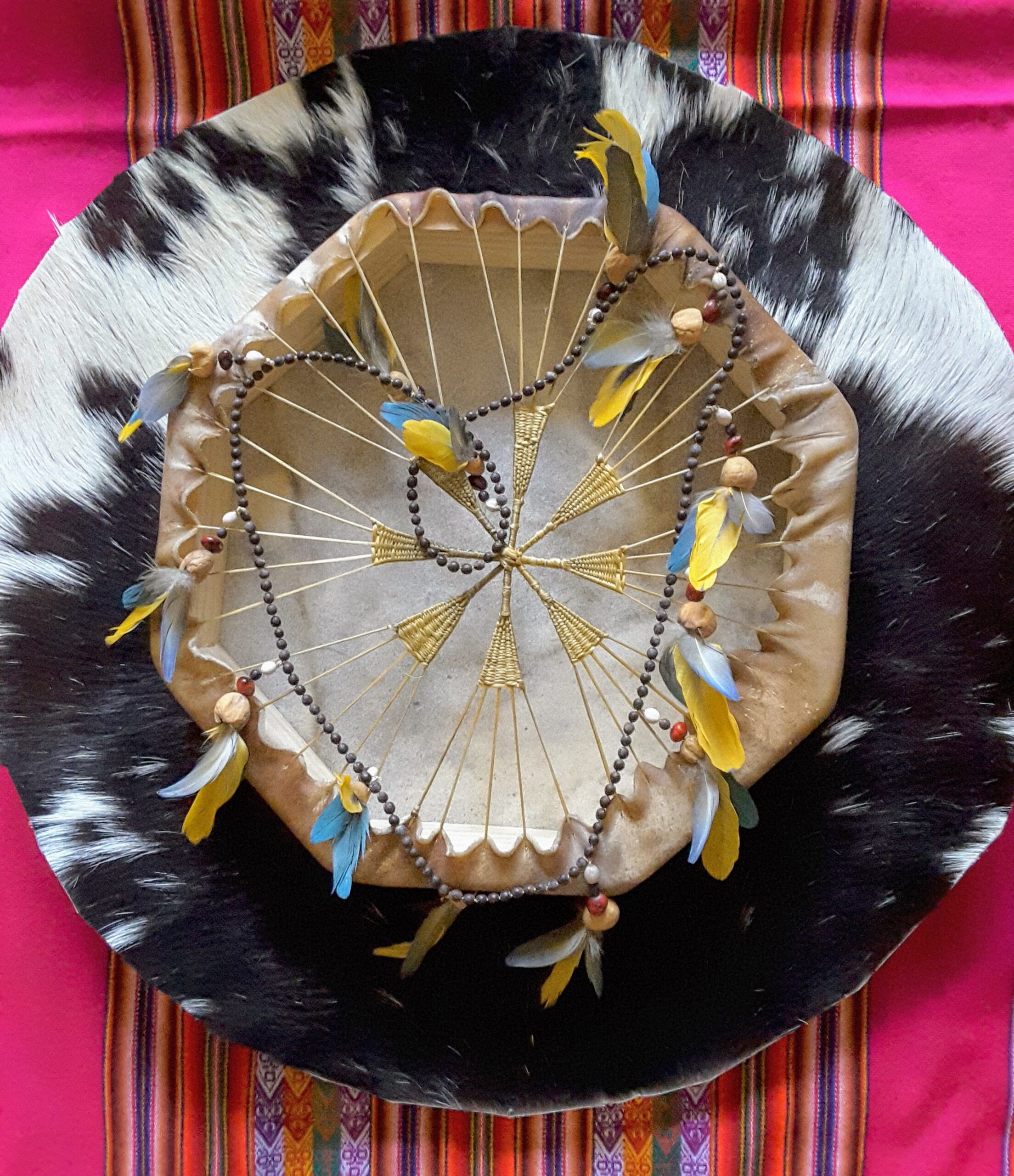 Psychology: Drumming for Depression
Psychology: Drumming for Depression
Since depression is one of the fastest-growing problem areas in psychological treatment, drumming may be a particularly easy and helpful treatment option for mild cases of depression, possibly even reducing reliance on drugs.
In a story in the Telegraph, drumming was described as a viable therapy for depression: “Researchers found that adults who were given music therapy sessions, in which they played drums or instruments such as xylophones, showed fewer symptoms of depression or anxiety than those who just had standard counseling.
They suggest that it helped patients express their emotions as well as being a pleasurable activity in its own right.
For individuals coping with depression, anxiety, or trauma, there is something more intuitive and liberating about communicating through music. Some find the combination of group therapy and drumming effectively brings more contemporary approaches to mental health together with the creative and non-judgmental expression of emotions.”
The long list of health benefits also includes: “… eating disorders, children with autism, cancer patients, war veterans living with PTSD, individuals with anger management issues, people with addictions, and even Alzheimer’s patients, drumming offers physical and emotional benefits.”
Drumming for Memory: American Psychological Association
In addition to concrete health, stress reduction and pain-relief benefits, the American Psychological Association has identified drumming and sound as promising therapy for memory loss, especially Parkinson’s and Alzheimer’s: “Since the rhythmic pulses of music can drive and stabilize this disorientation, we believe that low-frequency sound might help with these conditions,” Bartel says. He is leading a study using vibroacoustic therapy with patients with mild Alzheimer’s disease. The hope is that using the therapy to restore normal communication among brain regions may allow for greater memory retrieval.
Drumming for Theta: The Relaxed Mind Through Rhythm
Drumming repetitively at about four beats per second, has been proven to relax the mind, inducing either Alpha or Theta in nearly all participants in studies on the effect of drumming.
An abstract from the US Library of Medicine by Professor Winkelman, concluded, from a study: “Research reviews indicate that drumming enhances recovery through inducing relaxation and enhancing theta-wave production and brain-wave synchronization. Drumming produces pleasurable experiences, enhanced awareness of preconscious dynamics, the release of emotional trauma, and reintegration of self. Drumming alleviates self-centeredness, isolation, and alienation, creating a sense of connectedness with self and others. Drumming provides a secular approach to accessing a higher power and applying spiritual perspectives
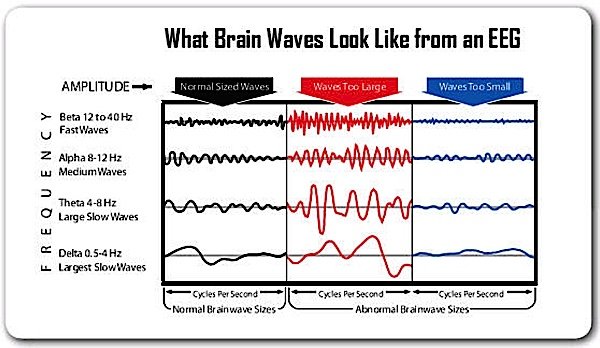
When an EEG is taken of a person focused on drumming at 4 beats per second, the brainwave will inevitably go to Theta, or least Alpha. An experienced Buddhist monk or meditator during silent mindfulness meditation would likewise achieve Theta brain waves in the low cycles. Theta brainwaves occur between 4 – 7 Hz or 4 – 7 cycles per second and is associated with meditative serenity, daydreaming, fantasy, imagination, ideas, inspiration. Deep Theta is often achieved by very expert meditators, and could almost be described as lucid dreaming. For the rest of us, mindfulness tends to result only in a light Alpha wave. Repetitive drumming, however, consistently moves even the busiest mind’s into Alpha, and many right into Theta.
Our normal awake mind is in Beta. Alpha is a more relaxed state, 9-13 Hz, characterized by “relaxed, calm, lucid, not thinking.” Not thinking sounds distinctly useful in mindfulness practice. Theta is one level of relaxation lower, at 4-8 Hz, which is characteristic of very deep meditation and mental imagery. The Theta state is normally only achieved by very experienced meditators. However, with a drum, even novice meditators can obtain a state of total relaxation and lucid not-thinking.
The Many Roles of Drums in Buddhism
The drum has a long history in Buddhist traditions: from the mindfulness support of the big drum in Mahayana Buddhism to the “wakefulness” support of the fish drum in Zen, to the hauntingly beautiful use of various drums in Tibetan ritual. Drums play an important role in Buddhist Chod, Tantra and other esoteric practices. Sound is also considered one of the eight sensory offerings to the Enlightened Beings and playing the drum or the bell are considered to be very profound offerings.
Drumming, or any form of percussion provides a very hard to ignore focus for mindfulness. It’s as simple as taking your favorite meditation technique, and adding the drum as the focal point, rather than the breath. You can either drum for yourself (which has extra benefits: the live sound of a drum is very moving), or use a drumming MP3 or recording.
The steps are literally 1,2,3:
1. Sit and get comfortable. Alternately, some people prefer to stand or even dance while drumming.
2. Using any drum, drum a regular, monotonous beat. You can beat quickly, which tends to induce a Theta response (helpful for visualization practices in Vajrayana, for example), or slowly. A heart beat, ba-bump, ba-bump, ba-bump has also been identified as therapeutic.
3. Drum for at least 15 minutes. I find 30 better. Simply focus on the beat (rather than your breath). Become the sound. As always, with mindfulness, if the mind drifts, just refocus gently back on the beat. If images appear, just observe. Be the listener (observer).
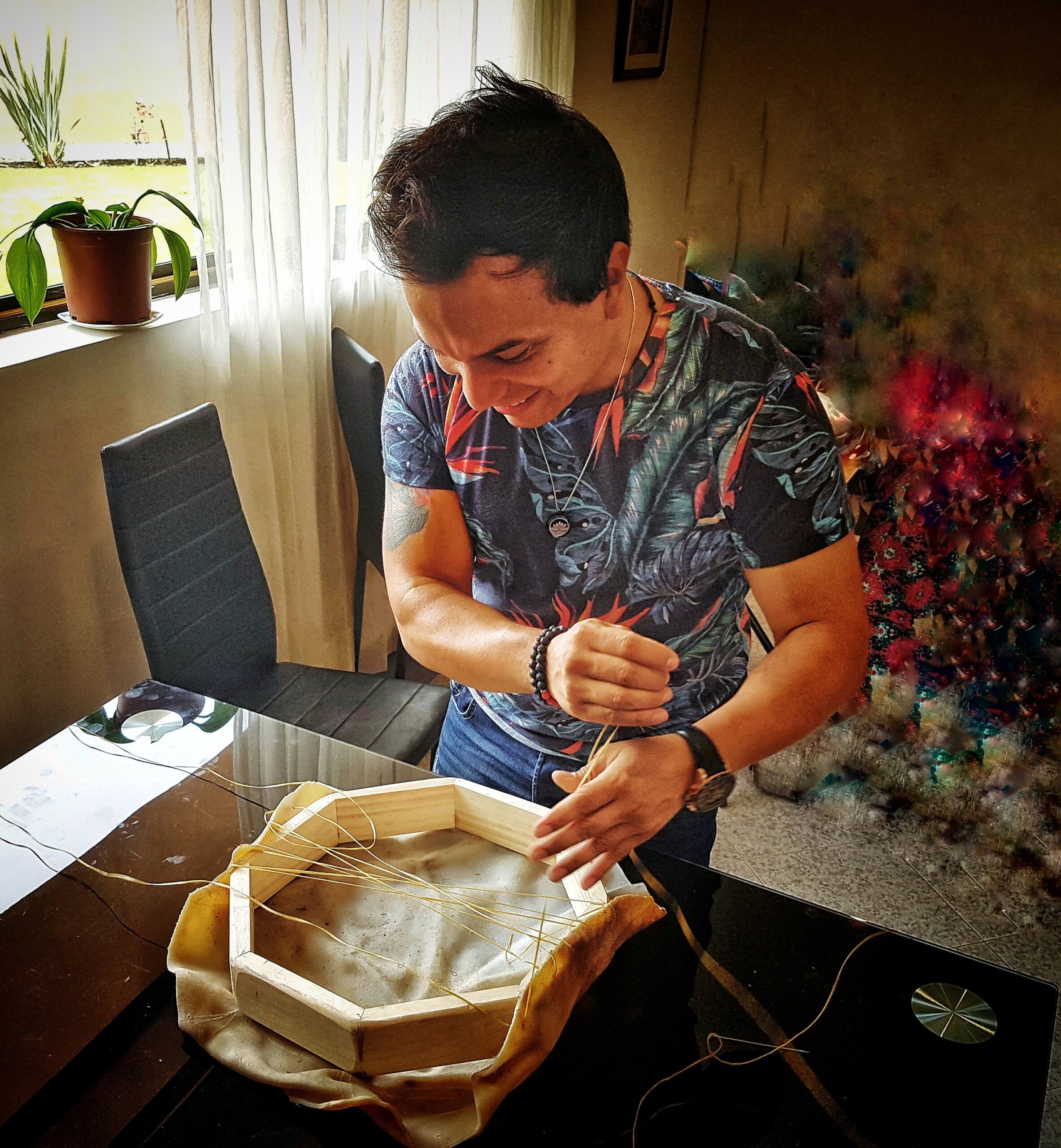 There are subtle differences, highlighted below, but all can help in mindfulness focus:
There are subtle differences, highlighted below, but all can help in mindfulness focus:
- Hoop drum and beater. The open drum has a beautiful, intense sound that genuinely makes a difference. This is sometimes casually called the shamanic drum.
- Chod Drum: very sacred and rapid sound, although they are expensive.
- Dhamarus: In Tibetan practice indispensable for some offerings/sadhanas, but the sound is great for meditation too, albeit it’s much more intense.
- Hand drums: various popular hand drums make great meditation tools, although I personally find the impact on the hand detracts from the mindfulness practice somewhat. With a stick, the impact is negligible. With a Chod or Dharmaru, there are no sticks. Hand drums are great, however, if they are recorded and played back.
- Rattles (Gourd rattles and shamanic rattles, not the children’s kind) can make an interesting mindfulness session, a different sort of percussive sound.
Ref Shamanic Drumming, Michael Drake Talking Drum Publications (April 12, 2012) Language: English, ISBN-10: 0962900230, ISBN-13: 978-0962900235 Psychology Today: “The Heart is a Drum Machine: Drumming as Therapy”, Robert T. Muller, Ph.D https://www.psychologytoday.com/blog/talking- about-trauma/201501/the-heart-is-drum-machine-drumming-therapy Abstract: Complementary Therapy for Addiction: “Drumming Out Drugs””; Michael Winkelman, PhD, MPH
